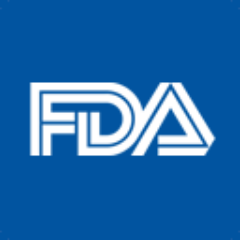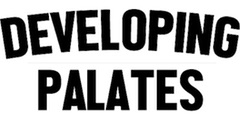On July 28, 2017, newly appointed U.S. Food and Drug Administration (FDA) Commissioner Dr. Scott Gottlieb unveiled a tobacco program known as Protecting American Families: Comprehensive Approach to Nicotine and Tobacco. One component of this program was a plan to push the deadline for cigar and pipe tobacco companies to submit products for FDA approval out nearly three years to August 8, 2021. This was one component that was put into an initiative by the agency to reduce nicotine levels in cigarettes.
There are a couple of reasons for the change in deadline for approval of cigar and pipe tobacco products. Part of the reason for the delay is that the agency recognized that what needed to be included in applications for approval for Substantial Equivalence (SE) wasn’t spelled out. Also, Gottlieb has said the agency is re-evaluating its approach for premium cigars.
[themify_box style=”light-green” ]
I am also directing CTP to explore other aspects of the current application review process. In particular, I have asked CTP to consider whether its current plan, which is to review all of the so-called Provisional Substantial Equivalence products, is an effective use of its resources and whether it should continue to pursue the current approach to these reviews. I have asked CTP to consider whether there is an approach that makes more sense, and whether by not reviewing some of those products, those review resources could be freed up for other purposes and greater clarity could be provided to the market.
In addition, we’ll also be revising the so-called “sunset policy” through additional guidance so that existing products under review remain on the market. The current policy could have forced existing products off the market. We’ll also be working to put in place a more comprehensive, transparent, and vigorous regulatory framework that will make our regulatory efforts more sustainable.
Finally, as I’ve noted, I’m also asking the Tobacco Center leadership to explore a process by which it could ask for new information related to the patterns of use and resulting public health impacts from so-called premium cigars. The final deeming rule covers all cigars. But I want the Center to consider opportunities it could provide to interested parties to develop and submit new information or data on this issue. This will take the form of a new Advance Notice of Proposed Rulemaking, to develop a new administrative record to explore these questions. We will explore any new and different questions raised, and seriously consider any additional data submitted relevant to the appropriate regulatory status of premium cigars.
-Dr. Scott Gottlieb, FDA Commissioner 7/28/17
[/themify_box]
What does this initiative mean for the cigar industry? I look at five key points coming out of yesterday’s announcements. These are listed in no particular order.
This is a Reason to Feel Positive
I’ve heard this announcement greeted with skepticism by some. I won’t use the word “win”, but it was some good news that closed out a slightly gray week in the cigar industry.
It started last week when we learned Marco Rubio was fighting for a clause in the Senate Appropriations Bill calling for an exemption of premium cigars. Such a clause exists on the House Bill. Without that clause, we cannot make progress on the front of stopping funding for the FDA on implementing the Deeming Rule. Late last week, the FDA won a Summary Judgement against Nicopure LLC and a group of vaping associations. This group had filed a lawsuit against the FDA over the Deeming Rule. While a good chunk of the ruling was outside the cigar industry, the judge did say that Congress was the one who has the authority to change the predicate date and not the courts. This could set some precedent in the cigar industry’s lawsuit. Finally, six Public Health Organizations filed a Motion with the Court to be named as defendants in the Cigar Industry Lawsuit against the FDA. This was a reminder that anti-tobacco is not going away.
The delay is a positive and should not be treated as a negative. Any time you can delay implementation of an unwanted regulation, it’s a good thing. It also buys the cigar industry more time in terms of its overall fight against the FDA. At the same time, the fact the regulations are even being reconsidered for premium cigars is also indicative that the agency finally recognizes the “one size fits all approach for regulation” does not work.
I’ve heard some feedback that our trade associations (CAA, CRA, and IPCPR) have not done their job and had little to do with this decision. I completely disagree with this statement. I think the constant knocking on doors and showing up on Capitol Hill has had an impact. Can we Monday Morning Quarterback the overall battle plan the trade associations have taken? That is certainly fair game, however, in this case, I think their efforts have borne fruit.
All this is good news for the cigar industry. The cigar industry is in a better place today than we were a week ago.
Is the Delay Because of the New Administration?
This is a tricky question, but I’m inclined to say “no”. This might rattle some of the industry insiders, but there is another way to look at this. We do know the guidance to handle the substantial equivalence applications did not exist and at some point, the FDA was going to have to realize it was going to need more time to implement its program. This is evident by some of the delays that have already occurred. At the same time, I’m doubtful if under another administration, it would have been a three-year delay. My gut tells me it would have been less.
The fact that Dr. Gottlieb has called for a re-evaluation of the process for regulating premium cigars is a good thing. On top of that, the FDA for the first time acknowledged the impact of products being removed from the market.
A Potential Punt
The three-year delay to me was a bit curious for one reason. The year 2021.
I want to believe that Dr. Gottlieb had good intentions toward the cigar and pipe industry, but he may simply be making things easier for himself by pushing out the date to 2021. Yesterday’s announcement indicates he has responded to our concerns and is re-evaluating the situation. But the 2021 date will fall into either President Trump’s second term or the first term of a new President. There is a good possibility when 2021 comes around, Dr. Gottlieb will be doing something else. That’s the nature of the government.
When it comes to the Deeming Rule, most likely the agency’s focus is going to be around re-evaluating the regulations. In the interim, it’s going to be up to the cigar industry to continue to educate the FDA.
Expect a Lot More Attention on Nicotine and Cigars
The announcement concerning reducing nicotine levels in cigarettes is historic. This could be something the cigar industry is forced to deal with head-on in the next decade.
Over the years, the government (not necessarily the FDA) has employed several ways to wean people off of cigarettes. Many of these tactics have included warning labels, limiting marketing activities (TV commercials), smoking bans, and tobacco taxes. The difference with Gottlieb’s initiative around nicotine is that it focuses on the science – and that’s something very much worth keeping an eye on.
Gottlieb has been consistent on the science since he took office. He discussed this when he referenced premium cigars at a Senate Appropriations Hearing on June 20th: “We are currently looking at aspects of the rule. As you know, there was a three-month delay in implementation of certain compliance dates announced before I arrived at FDA and we are coming up at the end of that delay. Whatever we do in this regard is going to need to be science-based, of course.”
So unless premium cigars are exempted from regulation (which still is a real possibility given they are considered “different”), nicotine is going to play an important role. While the FDA has been deliberately vague on guidance for pre-market approval such as SE (substantial equivalence), it is safe to say that nicotine levels play a key role.
Now, what happens if the FDA’s initiatives on reducing nicotine are applied to premium cigars? It’s going to be interesting to see whether the FDA will continue to employ a “one size fits all” approach for tobacco regulation or whether premium cigars will have their own consideration.
Whatever the case, producing compliance data regarding nicotine is going to be a challenge for many brands who simply are not familiar with the process. For smaller manufacturers, navigating the complexities of the SE process may well keep them up at night for quite some time.
The Stealth Products
I’ve been critical of the concept of stealth products as a whole, but right now if you are a company with stealth products in your arsenal you are looking pretty good.
I’ll recap my definition of a stealth product: a stealth product is a cigar that has had virtually no marketing and for the most part has been sight unseen before arriving at a retail cigar establishment. While this is not an entirely new concept to the cigar industry, stealth products have been showing much more frequency this month (August 2016) than any time in the history of the U.S. premium cigar business.
There is one common thread about the recent swarm of these stealth products: they were sold, invoiced, and shipped to retailers all before August 8th, 2016 – the date when the Deeming Regulations took effect. Any cigar released from August 8th and beyond must get regulatory approval from the FDA.
The reason for stealth products is that there is a window of time during which cigar manufacturers and brand owners can apply for FDA approval for products that are not grandfathered from regulation (February 15, 2007), but have been released before the August 8th date. Therefore, there was a rush of products released before August 8th. Companies originally had until November 8th, 2018 to get approval. That window has now been extended three years to August 8th, 2021. If a company had stealth product introduced prior to August 8, 2016, there now is more time to bring these products to market.
There are several companies that have been pretty up-front that they have introduced plenty of SKUs. Companies that released stealth products like Rocky Patel, La Palina, AJ Fernandez, Espinosa, Drew Estate, Recluse Cigar Company, and Alec Bradley, are probably smiling right now. Most likely, these stealth products were not going to make it to market by 2018. Now, these companies have three extra years to cash in.
I’ve been critical of the companies that have introduced stealth products in a clandestine manner. Those like Recluse Cigar Company and Espinosa did it the right way as they did not take the “cloak and dagger” approach. I have not changed my opinion one bit, as I still think it’s not good for the industry the way these products were put on shelves. In some cases, the cigars have been enjoyable. In other cases, they have not. People don’t forget the latter.
However, you still have to give companies credit who did this. They rolled the dice and hit a jackpot. Now is the time to act and introduce them to market.






August 5, 2017 @ 1:41 pm
What about the ‘draconian’ warning labels being req.d by the FDA? Will they be delayed, eliminated, pushed back also? This phase will not be implemented until August 2018, but the warning label plan is due August 10, 2017. ! They even want retailers to post warning signs when cigars are sold individually. WTF. For cigars that are sold individually, and not in a product package, the retailer must display all six of the required warning statements on a sign posted at the point-of-sale, per 21 CFR § 1143.5(a)(3).
http://www.fda.gov/tobaccoproducts/labeling/labeling/ucm524442.htm
http://www.fda.gov/TobaccoProducts/GuidanceComplianceRegulatoryInformation/Manufacturing/default.htm#when